How 2°East co-founder Sally Lim is bringing sustainable watches and slow marketing to Hong Kong
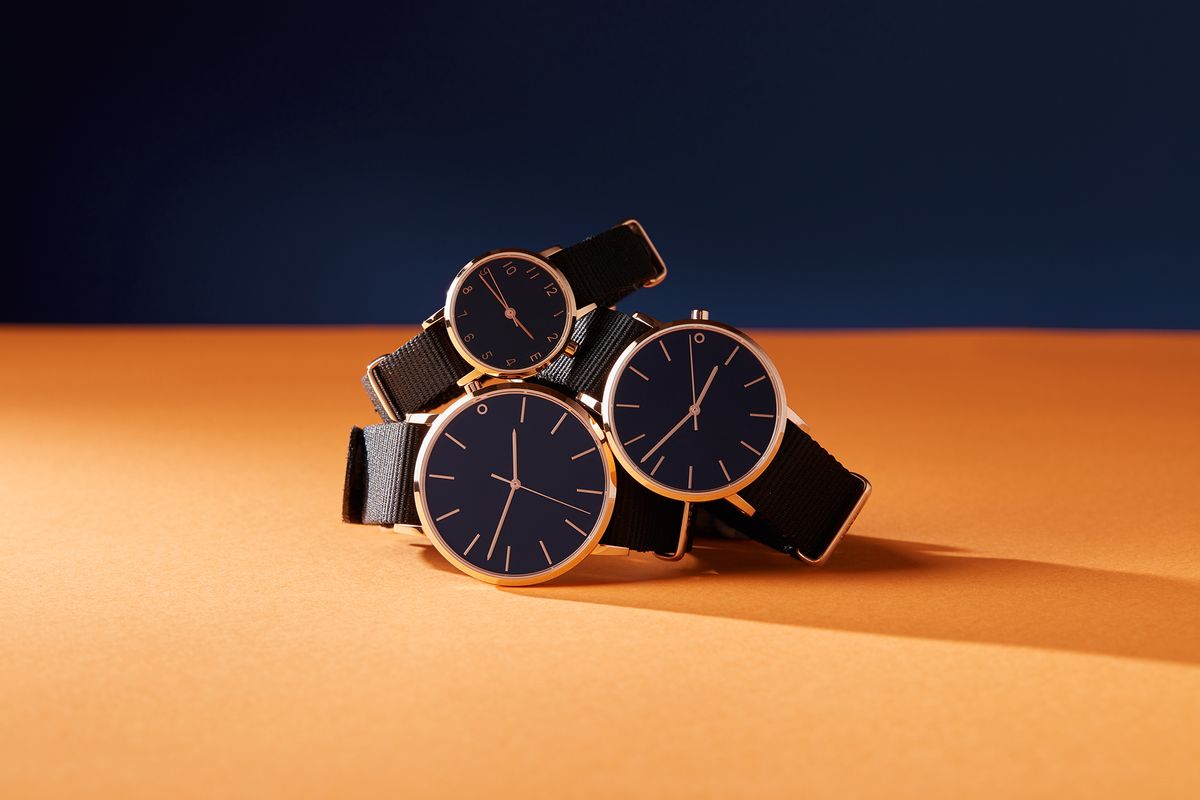
A few minutes every morning is all you need.
Stay up to date on the world's Headlines and Human Stories. It's fun, it's factual, it's fluff-free.
Sustainable brand 2°East manufactures simple watches, and it’s backed by two people with a vision to make ethical consumption accessible. These analogue timepieces are for anyone looking to make an effort to shop with the environment in mind. Built with intricate craftsmanship, including quality materials like sapphire crystal, Italian full-grain leather and zero waste ion plating, these watches are made in their own factory. Why? For the sake of transparency. They even plant trees for every watch sold.
The founder of 2°East, Sally Lim, moved from Melbourne, Australia, to Hong Kong with her husband where the birth of their daughter prompted Lim to leave her career in pharmaceuticals. Next, she started seeking out an ecologically-friendly business opportunity.
That’s when Lim met Ron, owner of a watch manufacturing and assembly facility in Shenzhen, China. Awed by Ron’s humbleness and loyalty toward his staff and suppliers, Lim joined forces with him to create 2°East.
TMS caught up with Sally Lim to learn about her journey into building a sustainable brand and chat more about accessibility to sustainability, production, honest marketing and more.
Sustainable living in Hong Kong
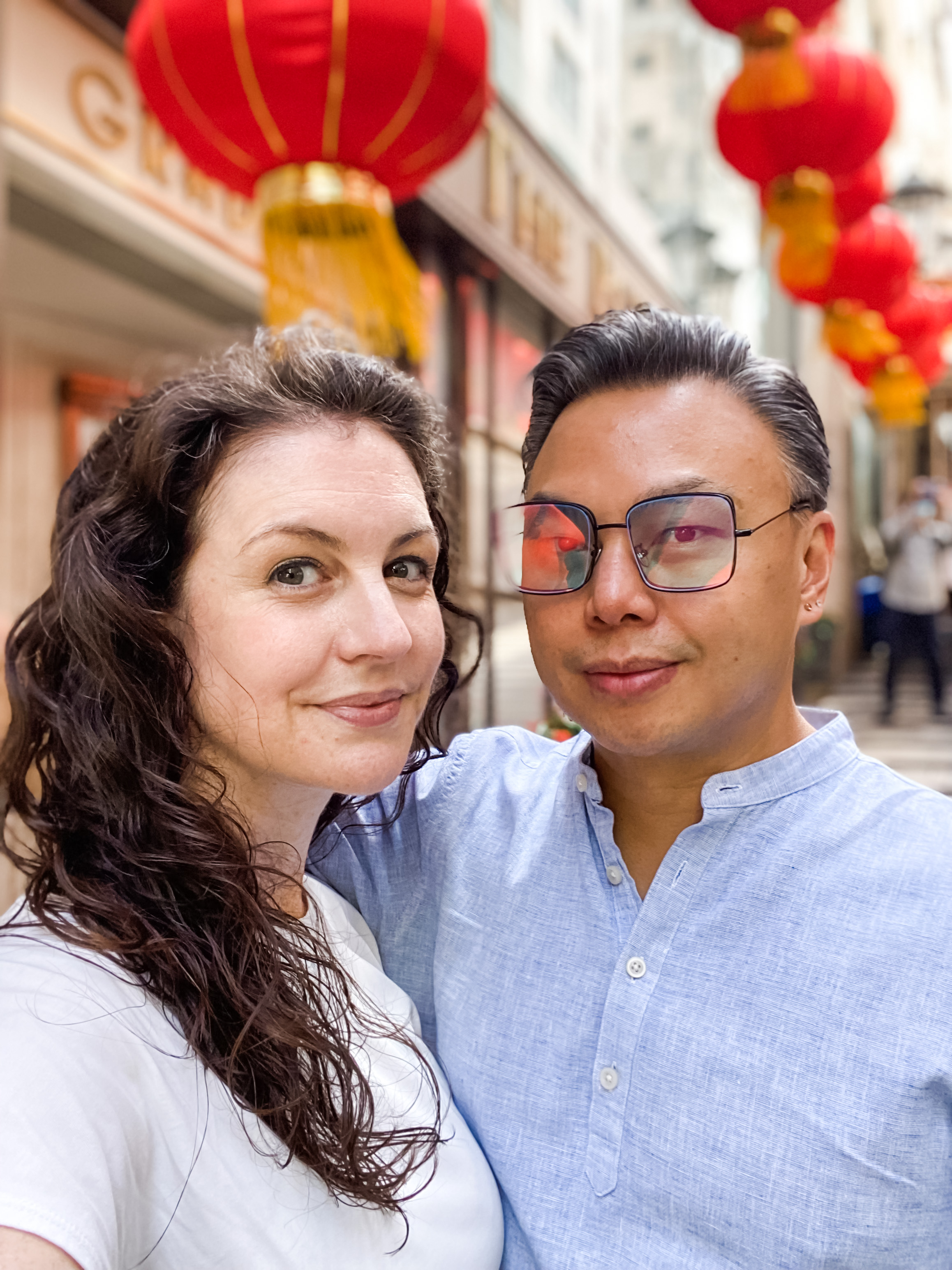
Living in Melbourne, Australia, Lim could easily participate in a zero waste lifestyle. Luxuries like fresh produce without packaging were available within walking distance from her apartment.
But, when she moved to Hong Kong with her husband, Lim realized sustainability isn’t accessible to everyone. In Hong Kong, where almost everything is imported, the obscurity of the supply chain makes ethical consumption and zero waste living far more difficult to achieve.
“The good thing about moving to Hong Kong is it’s a very entrepreneurial kind of place," explains Lim. “It’s a great place to give something a go because we have access to a lot of suppliers just over the border in China."
The down side of that proximity is the sheer excess of low-quality, mass-produced products, from clothes and kitchenware to stationery and watches. Lim realized the reason we need so much stuff is because of the limited lifespan of the products we consume. And she observed the lack of supply chain transparency as one of the main obstacles to sustainable living. It was time to do things differently.
2°East began when Lim’s watch broke, and she wanted an affordable and sustainable option. “I just couldn’t find a reasonable option," says Lim. “So it kind of started from there and fell slowly into place. A lot of people need a watch. Let’s see if we can make one that suits people who are trying to do the right thing."
The challenges of sustainable watches
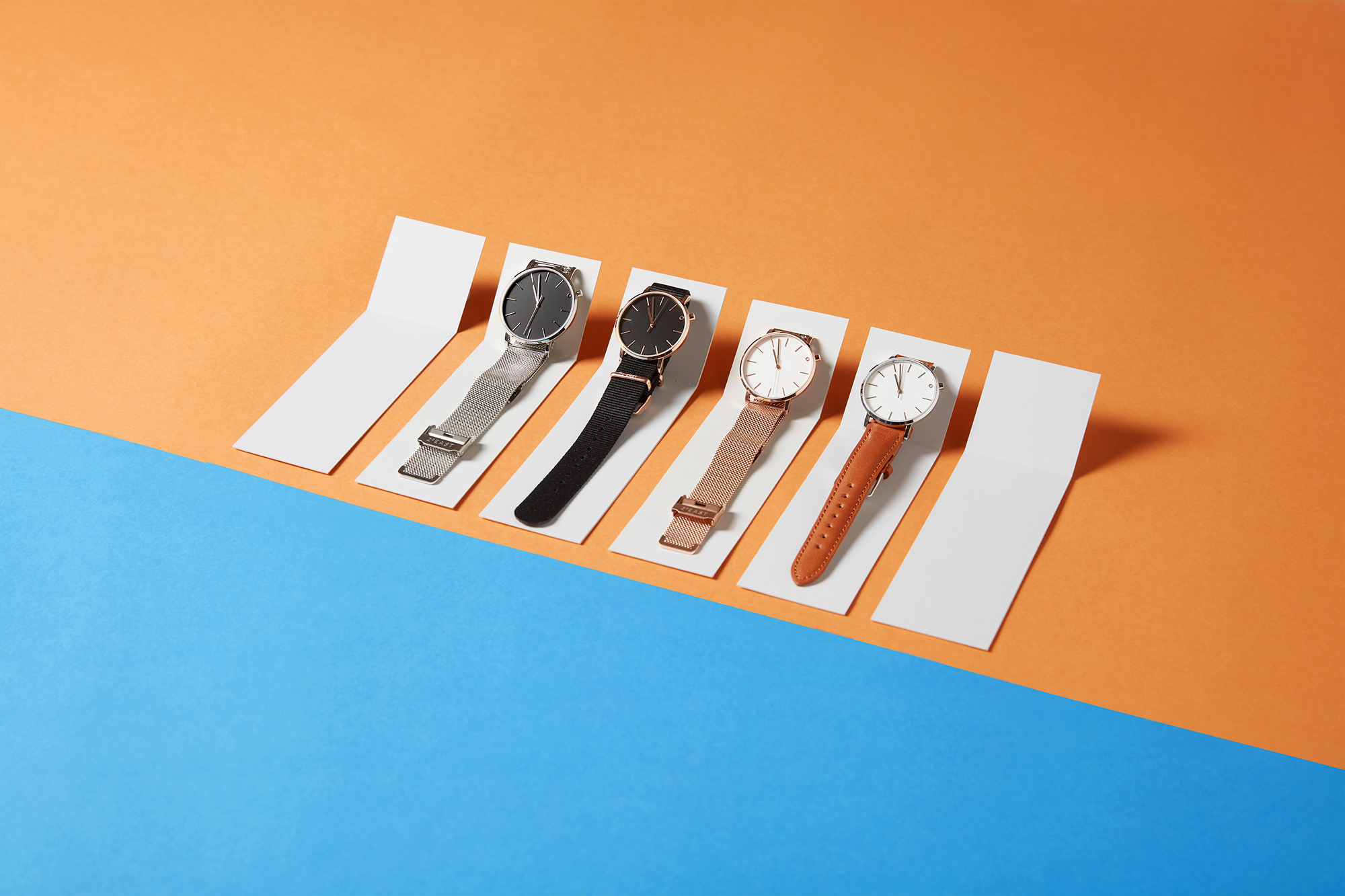
“My general product idea was just a watch that didn’t have plastic in it and wasn’t packaged in plastic," says Lim. “Just a nice, simple watch. Not too expensive. And it was far more complicated than I thought."
When Lim discovered just how much goes into making a watch, she began understanding why supply chain transparency is hard to attain. She went down a rabbit hole of sourcing materials for her product. What would the strap be made of? What would the dial be made of? How would it be plated?
“So it turns out that each component is made in a different factory," says Lim. “So there’s a little tiny workshop that makes just the dial. There’s a tiny workshop that just makes hands and the little indices. There is a different place that weaves the yarn; there’s a different place that makes that into a watch strap.
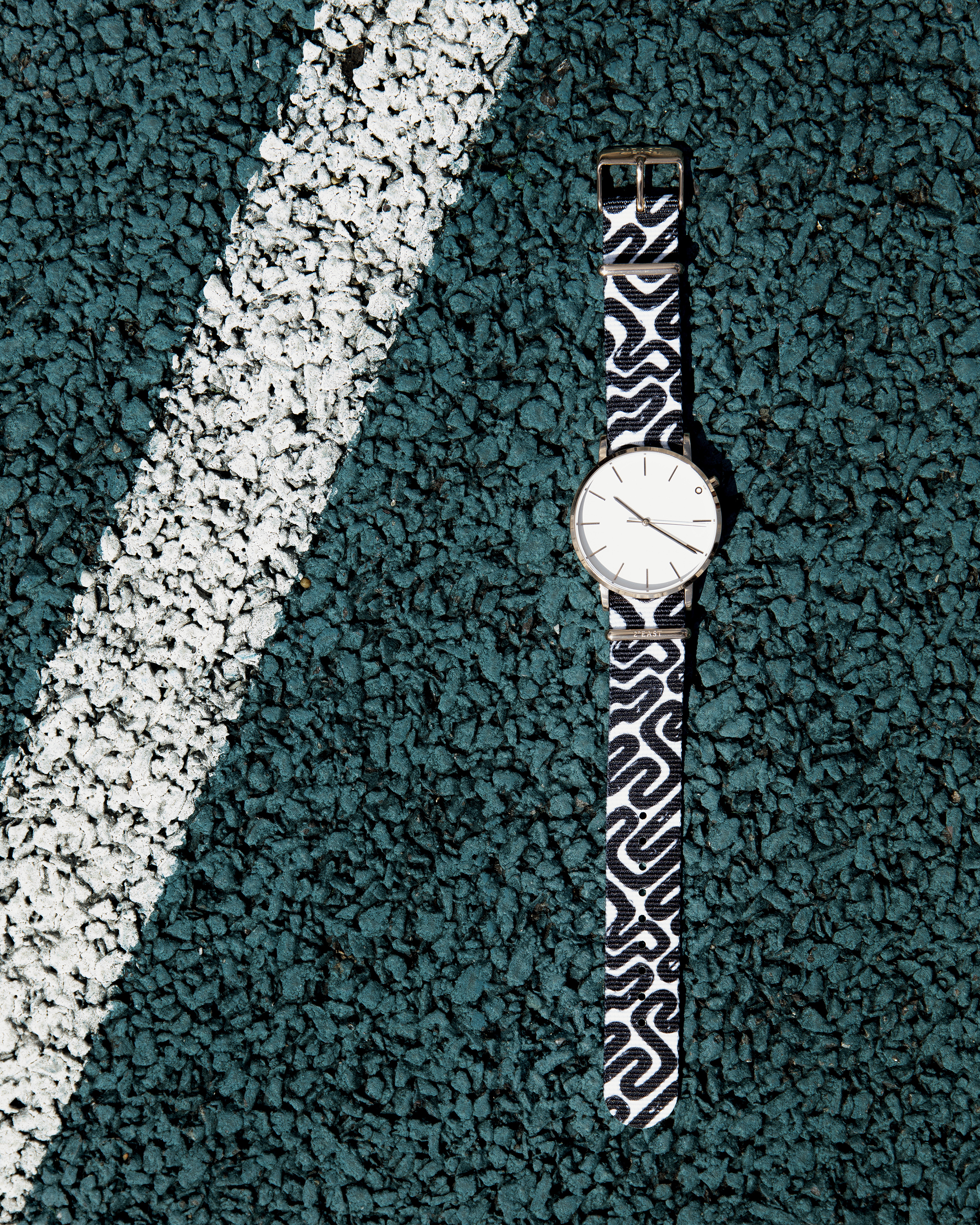
“And with all of those, there are considerations that need to be made," says Lim. “If you’re going to plate the watch in gold, where did that gold come from? And is the way that it’s plated going to be incredibly water intensive? Will there be chemical runoff?"
Even with these complex decisions in the name of ethical consumption, there had to be trade-offs for the sake of marketability. While Lim wanted ultimate sustainability, a mechanical watch wasn’t realistic.
“How many people want to buy something that they have to wind every time they put their watch on in the morning?" says Lim. “I know personally I wouldn’t want to wear a mechanical watch because I would just forget to wind it and be out and need to know the time and not and realize it’s not running.
“I was trying to decide, ‘Who am I going for?'" explains Lim. “Am I making the most perfect watch on Earth or am I making a better option for regular people to buy?"
Slow-but-honest marketing
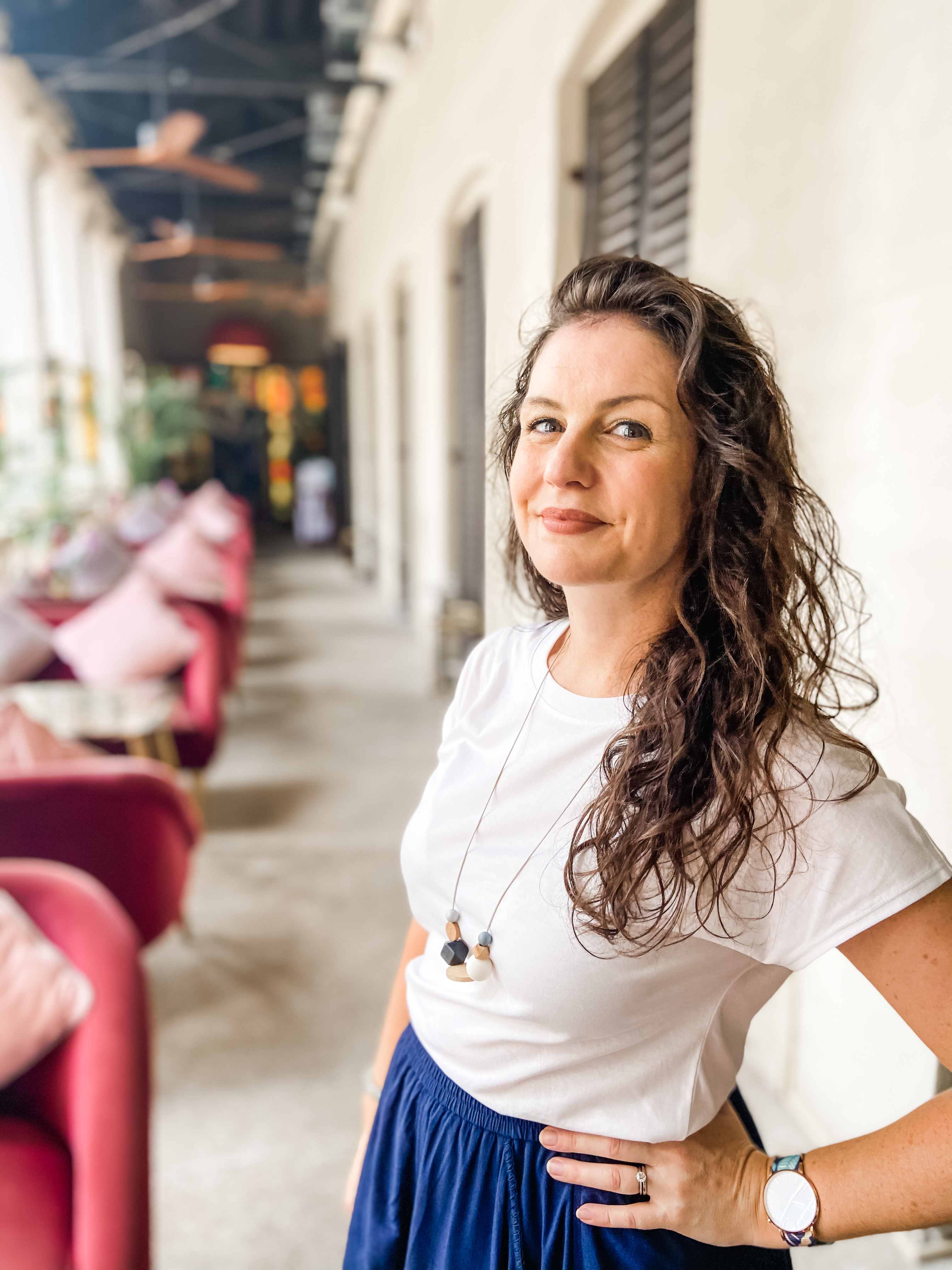
In a world saturated by marketing, it’s difficult to escape. And sometimes it can leave you feeling inadequate. Lim didn’t want to chase her customers with aspirational or unattainable marketing. Luxury brands often paint a picture of beauty and joy that not everyone can reach. Lim wanted something more functional and optimistic.
“I went the approach of, ‘Hey, we make a thing if you need it, here’s why it could be suitable to you," says Lim. “‘Have a nice day!’ That kind of messaging left me feeling happy while other messages leave you feeling like you can’t look like any of the women on that luxury brand’s social media feed."
Marketing often teaches you to zero in on a specific customer: a certain age, lifestyle, body type, etc. The rule book says to target that customer and your product will sell. But Lim aimed for something more inclusive, even if it proved more challenging.
“I think really my ideal customer is just regular people who would like to do a bit better. They’re not doing a perfect job of it because it’s hard … I would like to think that everyone now out there is living a bit more sustainably or at least trying. And so everyone is my target market. Anyone that needs to buy a watch and just wants to buy a better one.
“If someone comes across my brand, maybe I’ll teach them a little bit about what I’ve learned about sustainability," says Lim. “And if they want to buy a watch, here’s the things they could possibly look out for. I want it more like a happy space that leaves someone feeling good about themselves."
Take a look at 2°East’s website for more information on how they’re fostering a welcoming space for education about sustainability. You can also learn more about product upgrades, like the new Straps, which are woven from 100% post-consumer RePET recycled plastic bottles.




Comments ()